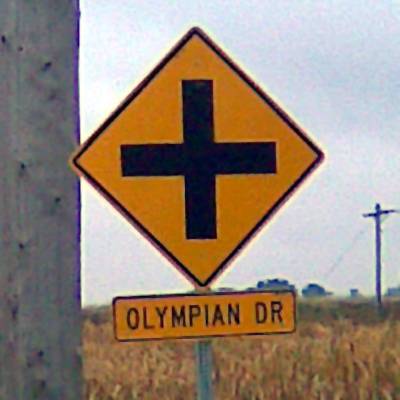 After nearly four hours of citizen comments mostly opposing the Olympian Drive expansion project, the Urbana Council unanimously voted to forward resolutions authorizing agreements with the City of Champaign, Champaign County, and the Illinois Department of Transportation to spend $5 million to design and purchase land for the Olympian Drive expansion north of Urbana for a Council roll call vote on April 19.
After nearly four hours of citizen comments mostly opposing the Olympian Drive expansion project, the Urbana Council unanimously voted to forward resolutions authorizing agreements with the City of Champaign, Champaign County, and the Illinois Department of Transportation to spend $5 million to design and purchase land for the Olympian Drive expansion north of Urbana for a Council roll call vote on April 19.
Mayor Laurel Prussing stressed that the city is not using city funds for this portion of the project and that it will include opportunities for public input and more concrete cost efficiency data.
Council members Charlie Smyth and David Gehrig both had reservations about the resolutions and pushed for amendments that included adding north Lincoln Avenue to the project. Smyth noted that this was the only area of the proposed project with both growth and rail access and that proceeding without its inclusion would be pointless. Gehrig expressed concerns about the cost efficiency of extending the road past Lincoln Avenue.
The decision came despite an email from Congressman Tim Johnson stating that he will not be pursuing earmarks for any projects for the coming year due to the Republican moratorium. Champaign County Board member Al Kurtz also addressed the Council advising it not to proceed with the expansion due to financial considerations, namely that there is not federal nor county funding for the project which will delay it and no doubt make it more expensive. Kurtz also noted that based on communication he had with constituents, about 95 percent opposed the expansion.
Proponents of the expansion included Champaign Deputy City Manager Craig Rost who cited the numbers of new businesses locating to the Apollo subdivision. Smyth questioned Rost as to how many of the jobs were actually new and not merely being relocated from other parts of Champaign and Urbana. Rost said that the city was only issuing incentives to companies creating new jobs in Champaign.
Stating that his statements did not represent those of the Urbana Park District, Michael Walker said that while he supported local businesses and local agriculture, he had changed his mind about the project over the years and believed that the tax revenue it could generate was necessary for maintaining Urbana’s Parks.
Just how much revenue that might be came into question during the meeting. Smyth took exception to the fact that the city planning division’s cost and revenue projections did not include North Lincoln Avenue. Urbana resident Stephen Wald noted in addressing the Council that based on the projections presented — which placed total net revenues from the area at $5 to $21 million spread over 30 years — the benefit to Urbana residents could average just $10 per person per year.
Clarifying the voting procedure, Council member Brandon Bowersox stated, “The City Council must consider major items twice so that there is sufficient time for public scrutiny and input. On the second and fourth Monday of each month we meet ‘in Committee.’ On the first and third Monday we meet as ‘City Council.’ It is basically the same seven people, but the Committee meetings are less formal and our the first chance for review, questions, and discussion. The Council meetings are more formal and are the final step for taking an official roll call vote. Most major items are routed through at least one Committee meeting before going to a City Council meeting.”








